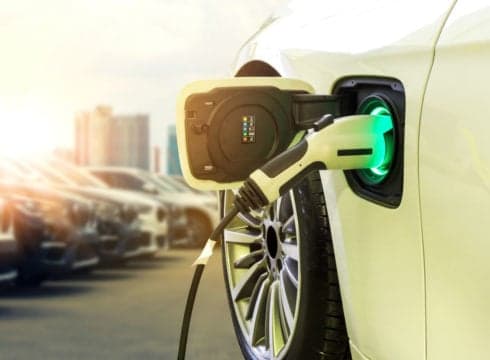The Global Trade Research Initiative (GTRI) has said that the production linked incentive (PLI) scheme should focus on making electric vehicle (EV) cells or lithium-ion cells and not batteries
GTRI said the government should allow the domestic EV sector to grow naturally without relying on incentives as it would avoid India becoming an 'EV colony' for China as India faces unique challenges not faced by other countries in adopting EVs at large scale
Further, the think tank suggested the government to invest in battery recycling infrastructure and support clean energy sources to power EV charging stations
Inc42 Daily Brief
Stay Ahead With Daily News & Analysis on India’s Tech & Startup Economy
The Global Trade Research Initiative (GTRI) has said that the production linked incentive (PLI) scheme should focus on making electric vehicle (EV) cells or lithium-ion cells and not batteries as most of the manufacturing and value addition takes place up to the cell-making stage.
As per an ET report, GTRI said the government should allow the domestic EV sector to grow naturally without relying on incentives as it would avoid India becoming an ‘EV colony’ for China as India faces unique challenges not faced by other countries in adopting EVs at large scale.
These challenges include 80% reliance on coal for electricity, frequent power cuts, and dependence on imported batteries and critical minerals for EV production.
“Since India does not have the expertise in cells making from core inputs, most firms import ready cells and make batteries by putting these cells in a box which is a superficial assembly work. PLI should not support such unsustainable operations,” Ajay Srivastava, GTRI founder told ET.
He added that the existing scheme for advance chemistry cell battery production has yielded no commercially viable results.
The global EV market is undergoing a significant shift, with the US, EU, and Canada imposing high tariffs and restrictions on imports of EVs and parts from China. These regions account for about half of China’s global EV exports, the report said.
Further, the think tank suggested the government to invest in battery recycling infrastructure and support clean energy sources to power EV charging stations.
It also advised strengthening environmental regulations for EV manufacturing and disposal to reduce the carbon footprint and other negative impacts associated with EV production.
Additionally, speeding up the shift to a cleaner energy mix by adopting more renewable energy sources, such as solar and wind, will reduce the carbon intensity of the electricity used to charge EVs.
It also recommended prioritising long-term sustainability by assessing the full lifecycle environmental impact of EVs, from production to disposal, to minimise carbon emissions and environmental harm.
This comes a month after electric two-wheeler startup Ola Electric’s S1 X escooter model (both 3 kWh and 4 kWh) received domestic value addition (DVA) certification needed to be eligible for the Production Linked Incentive (PLI) scheme for automobile and auto components.
Ola became the first Indian electric two-wheeler (e2W) company to become eligible for the government’s PLI scheme.
{{#name}}{{name}}{{/name}}{{^name}}-{{/name}}
{{#description}}{{description}}...{{/description}}{{^description}}-{{/description}}
Note: We at Inc42 take our ethics very seriously. More information about it can be found here.


